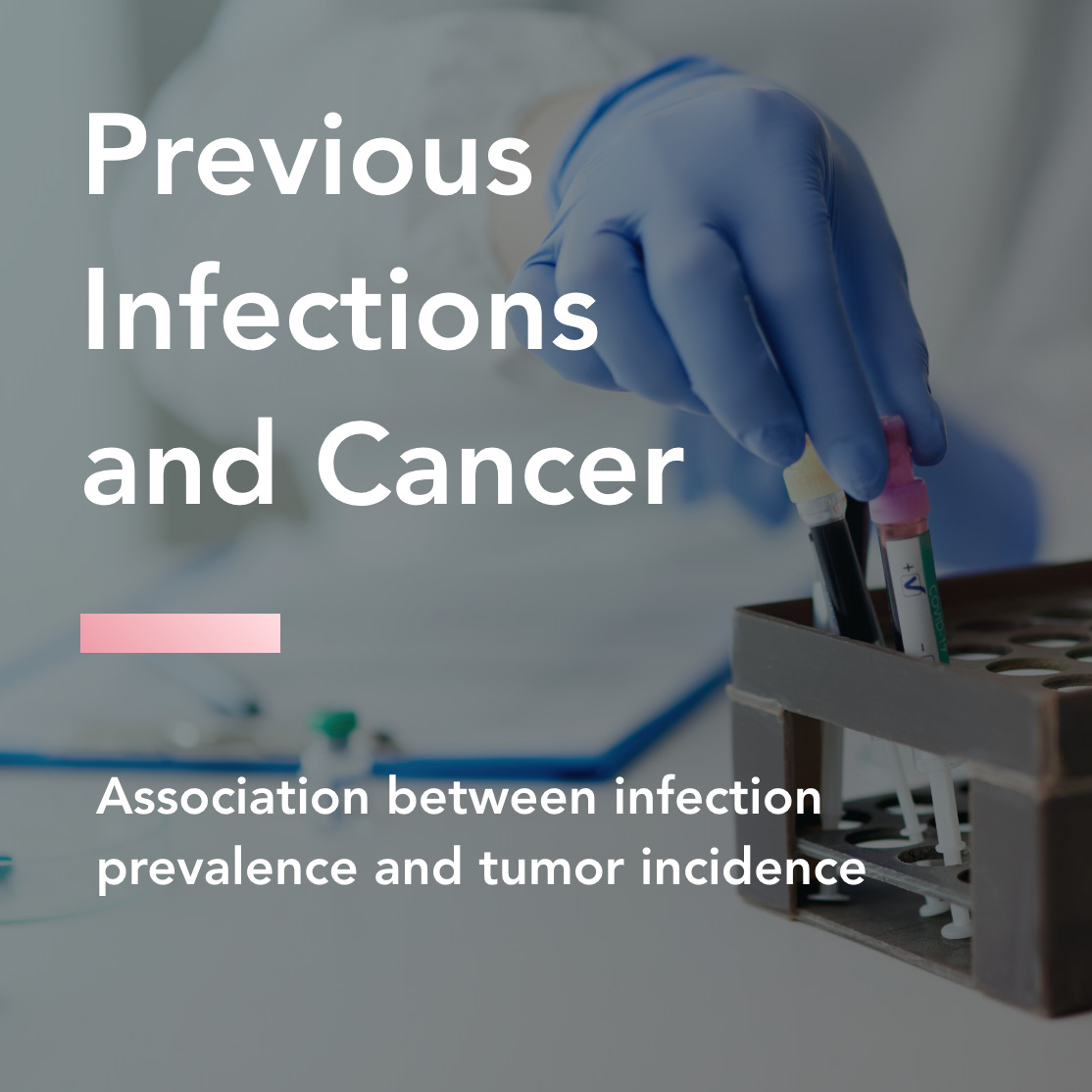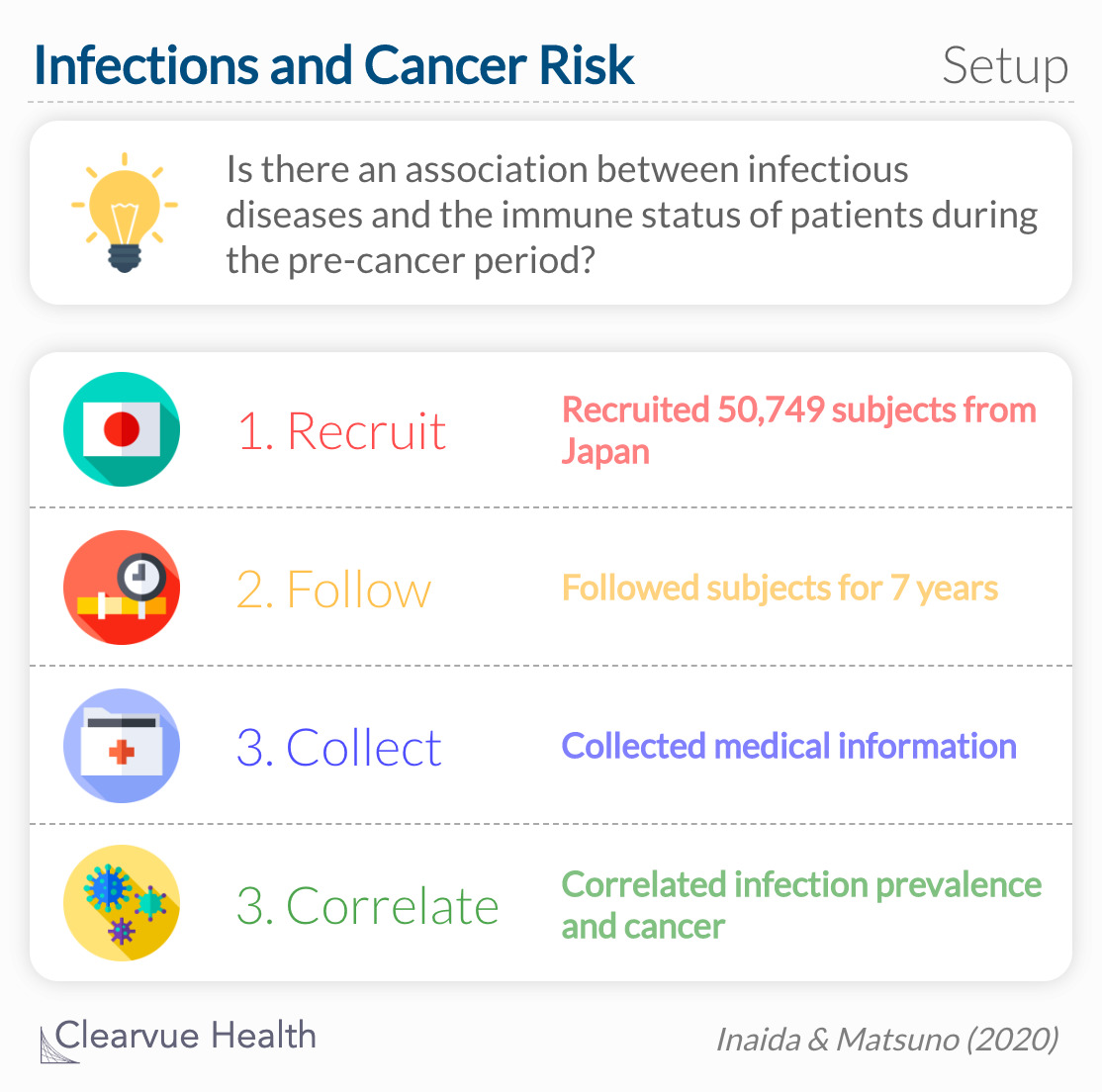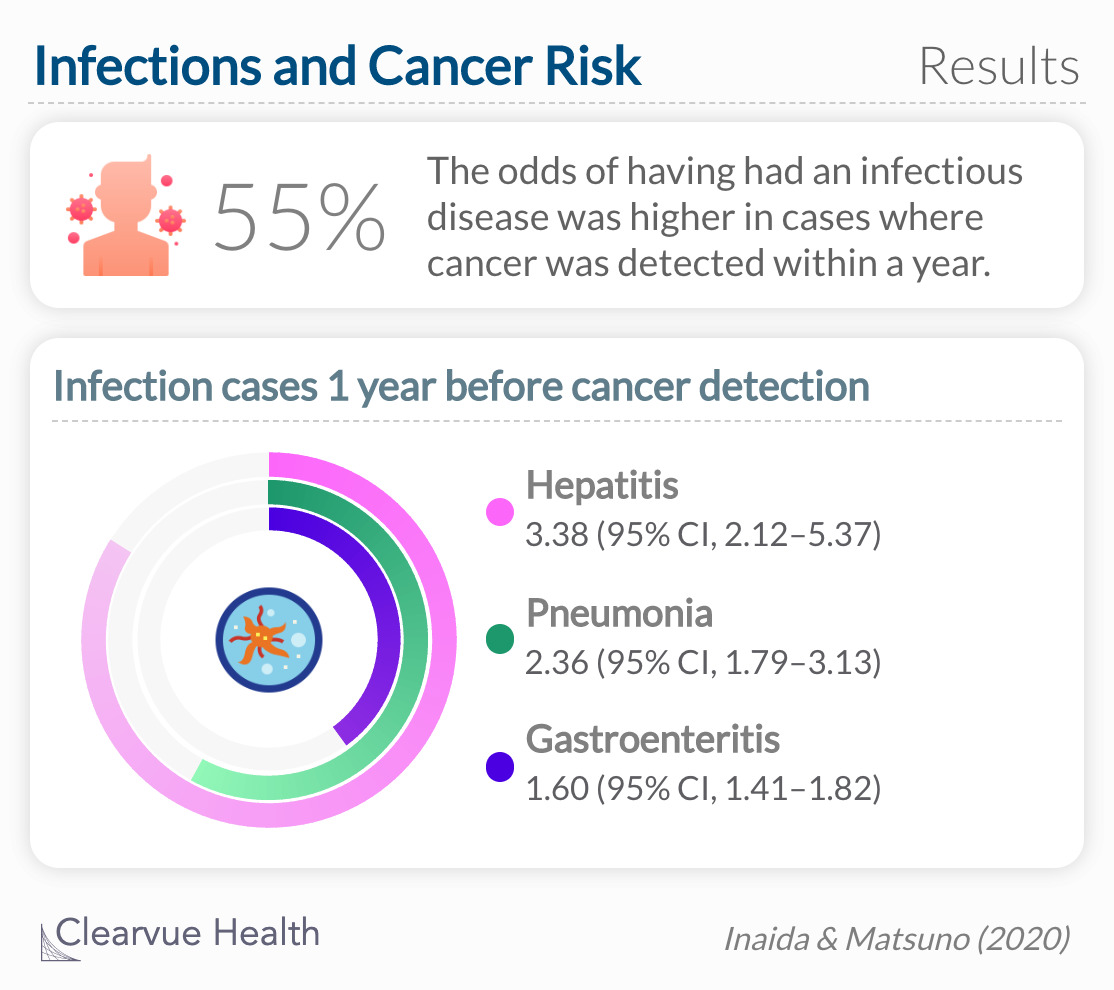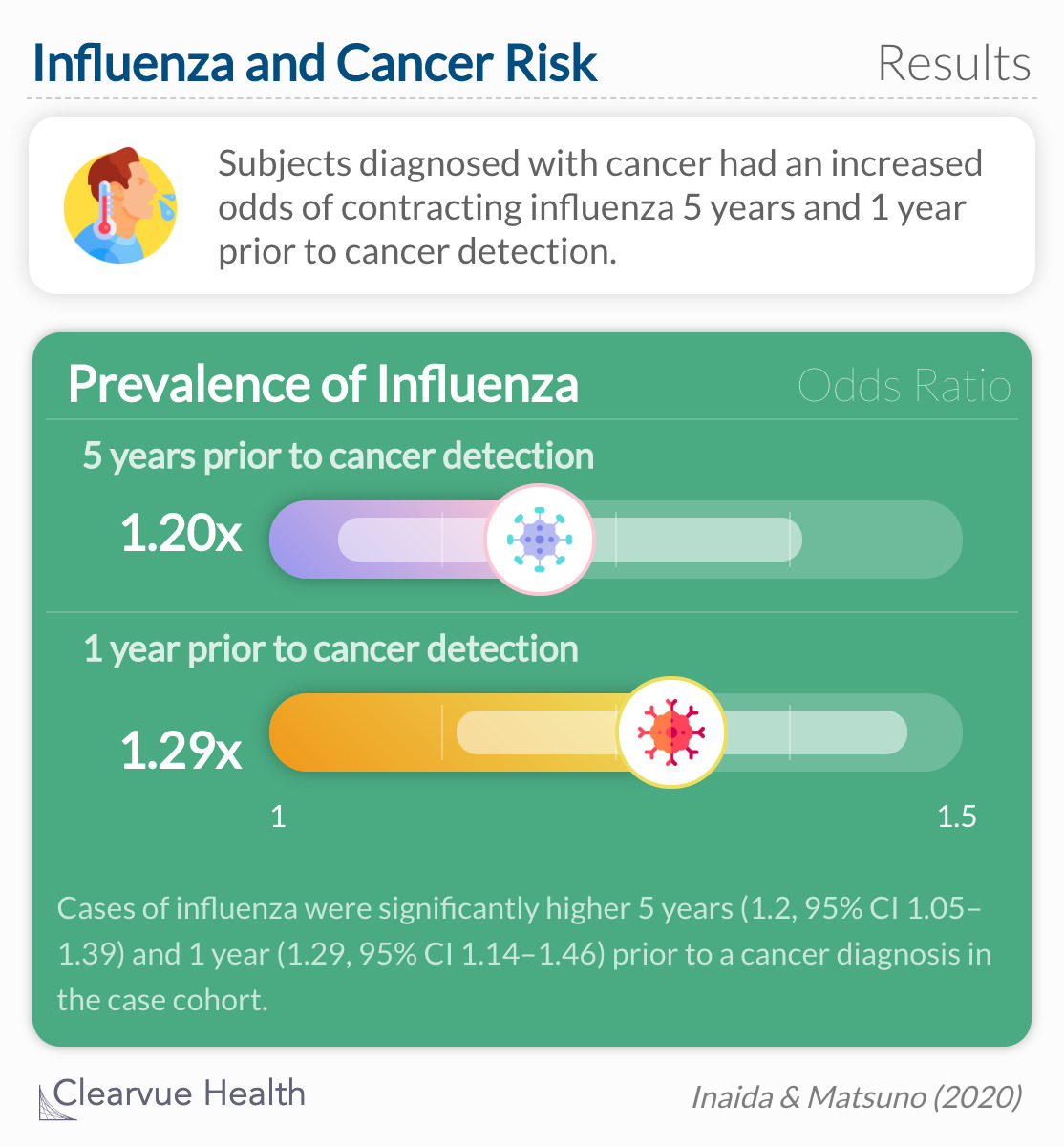Scientists are still exploring all the factors that lead to a cancer diagnosis. Over the last few decades, the link between smoking and cancer has been solidified. We are building a list of genes that are associated with an increased risk of cancer. A vaccine has been created that significantly reduces a women's risk of cervical cancer.
Discoveries like these have broadened our understanding of cancer and treatment, but there is still plenty to learn. In this article, we discuss new research about the association between infections and cancer incidence.
Study of infections and cancer risk
Source: Previous Infection Positively Correlates to the Tumor Incidence Rate of Patients with Cancer
Researchers used a large database from the Japan Medical Data Center. They gathered health data on over 50 thousand subjects age 30 or above between 2005 and 2012. On the seventh year, 2,354 subjects were diagnosed with cancer. The researchers wanted to see whether the subjects diagnosed with cancer as had a higher prevalence of infections before diagnosis.
The three most common cancer sites were digestive and gastrointestinal (except stomach), head and neck, and stomach. Most cases of infection occurred a year before cancer detection, suggesting that the largest change in immunity may occur just before cancer detection. The odds of having any of the studied infectious diseases was 1.55 times higher in cases where any cancer was detected within the year.
The large sample and long follow up period were strengths in this study. Also, the study excluded participants who were immune-compromised. This strengthens the data by not including anyone who has high susceptibility to infections. In general, the study did a good job at making sure the case and control groups were similar in demographics like health and age.
Another reason to get vaccinated?
These findings are not saying that infections cause cancer. However, the study does provide insights into immune system functioning in the years prior to a cancer diagnosis. If more studies find similar results as this one, doctors may start recommending additional cancer screenings for patients diagnosed with infectious diseases.






































